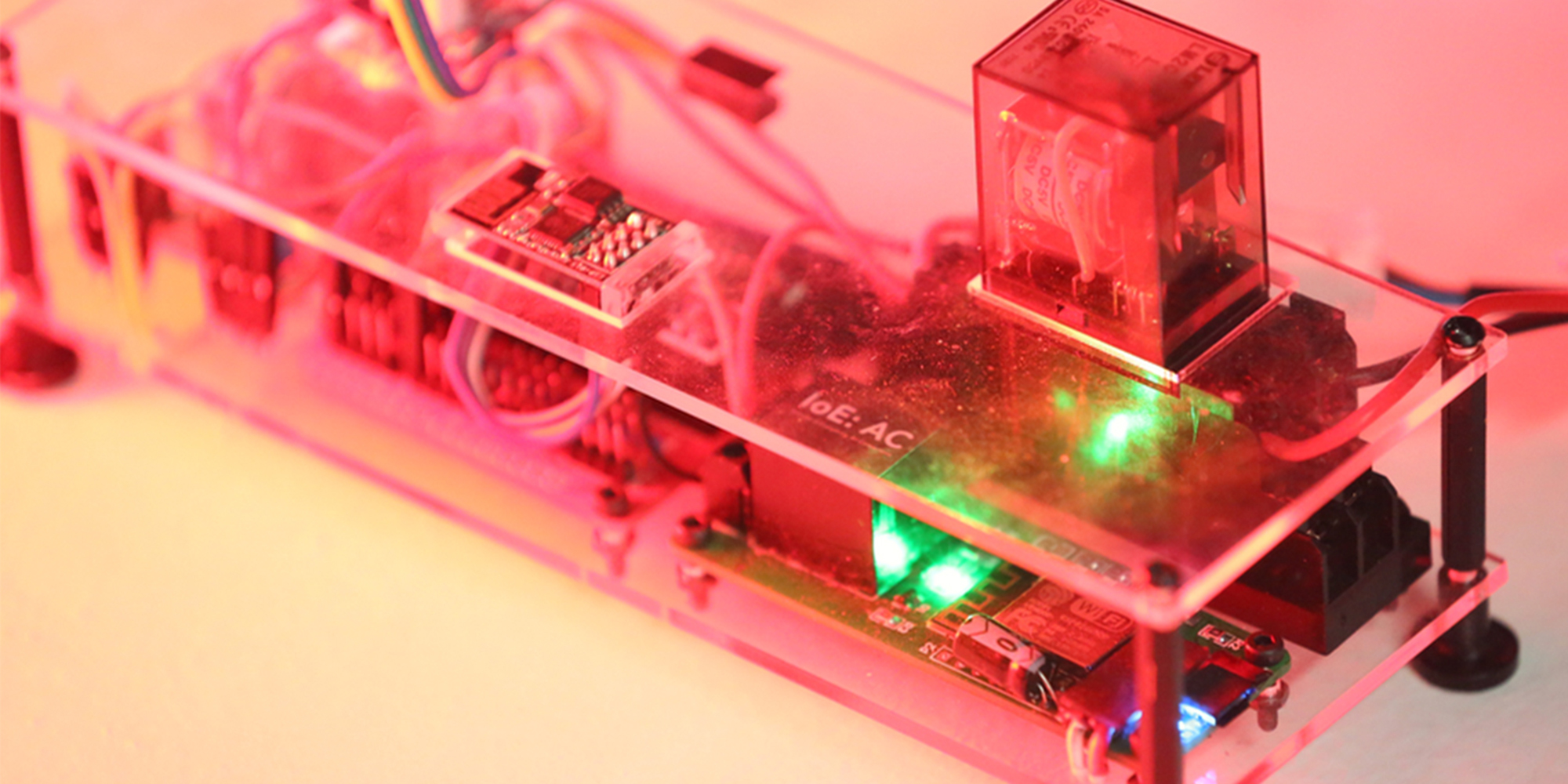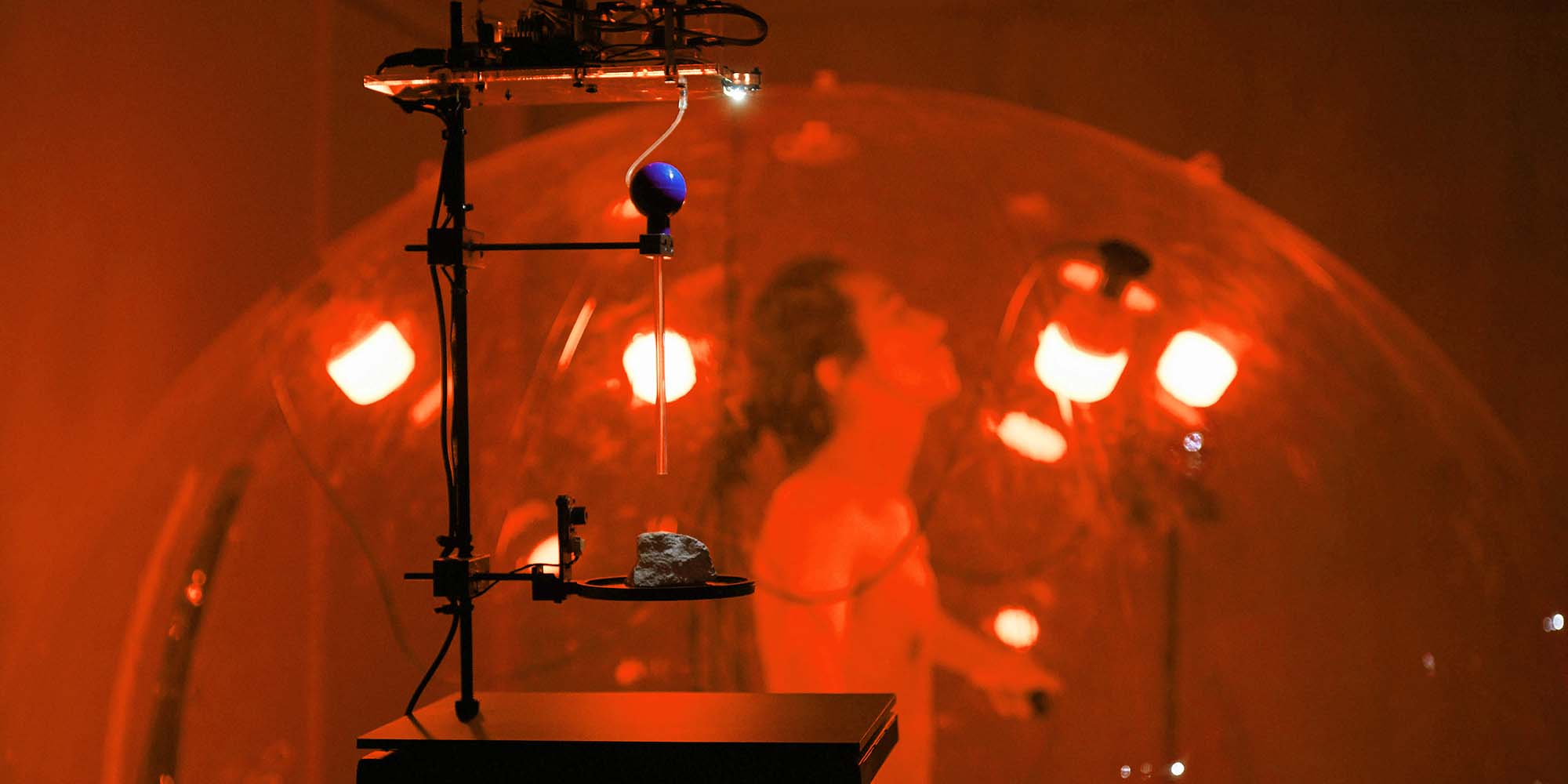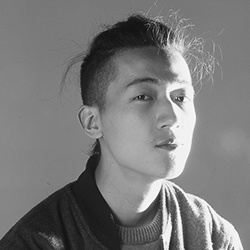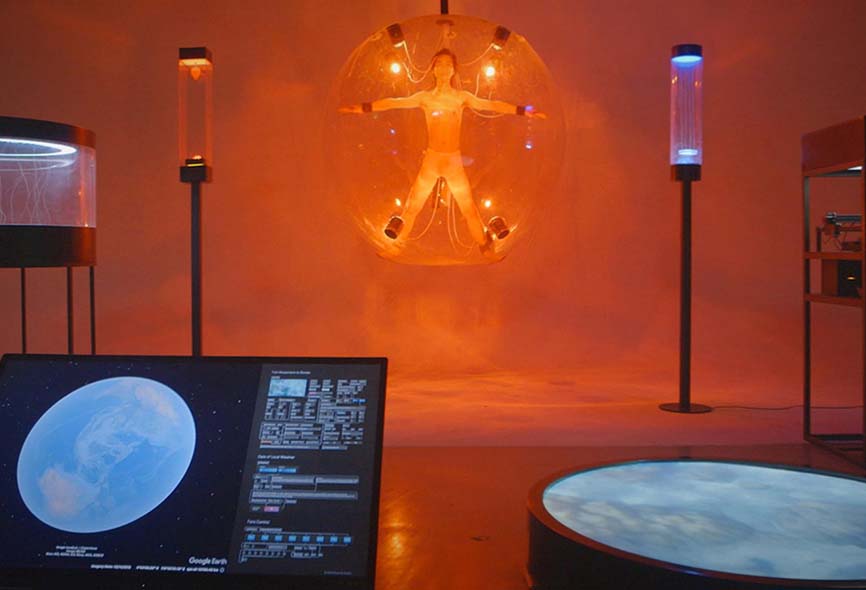People, animals, plants, bacteria, environment, substances and devices, connected via the Internet. Seven parts that affect each other one after the other. Internet of Everything: All Connections is part of the human (un)limited exhibition project by Hyundai Motorstudio and Ars Electronica, which is dedicated to the human success story, including its weaknesses, strengths and, above all, limitations. The work has no starting or ending point, since all parts are connected in an interlocking loop structure. This work creates a chain reaction of a loop configuration to express the interconnected relationship between organisms, machines and nature through network connectivity.
What the artist Shaun Hu shows on a small scale, we observe today on a global level: Whether climate crisis or extinction of species – our impact on the ecosystem of this planet causes extensive chain reactions with serious consequences and destroys more and more of the foundations of human life. On the occasion of the show in Beijing, where he is exhibiting until the end of February, we spoke about overcoming borders and the associated consequences for society and the environment.
Overcoming boundaries means growing beyond ourselves and making the supposedly impossible possible. The question of whether we can master such a challenge has always driven us much more than the question of whether it makes any sense at all, not to mention the consequences we would have to expect if we were to succeed. Why?
Shaun Hu: It takes people’s imagination and courage to break through boundaries. Now, we no longer worry about our survival every day like our ancestors, we will think about how to live a better life. The possibilities of the future fascinate us, which will require trying something that seems meaningless and paying a price. Each time we make some breakthroughs and find new possibilities, we will be excited and feel that all our efforts are worth it. Of course, we don’t always succeed in each step, but even if we fail, we provide a template for others in their exploration.
Paul Crutzen coined the term “Antropocene”. With it he wanted to express the enormous power we humans exercise today, but also the fact that it goes hand in hand with great responsibility. Do we humans find it easier to advance technological progress than to process it culturally? If so, why?
Shaun Hu: There is no doubt that the impact of humankind on the earth is huge, human beings do not seem satisfied with the compliant existence along with nature, progressive science and technology is the example. The development of science and technology can help us to survive better, just as technology is our physical body, only when the physical body is worry-free, we have a better environment to develop the spiritual world. Of course, the culture will promote the development of science and technology, or in some cases will require the development of science and technology. Advances in technology often come from our practical needs, such as certain tools or our urgent need to solve certain health problems. However, culture needs time to accumulate.

In contrast to all other living beings, we human beings can only survive by changing the world around us, by intervening in the system and thus inevitably triggering a chain reaction – as you also show with “Internet of Everything: All Connections”. Is there a way to control the consequences of our interventions or is this simply an illusion?
Shaun Hu: I’m not sure whether we can control chain reactions brought by the environment. I think we need to think about potential consequences before we try to intervene in it. So instead of controlling consequences, it may be more appropriate to figure out what we should do before the intervention.
Will we see ourselves in the future again more strongly as part of the ecosystem of this planet or will the increasing technologicalization of our world lead to a further alienation between us and nature?
Shaun Hu: Personally speaking, I think human beings are inseparable from nature. Although it seems that many technologies make it possible for us to affect nature, I think we are unlikely to be isolated from nature. We humans are under nature.

How do you understand the role of (media) art in the discourse on the future? What can art contribute?
Shaun Hu: We often see the use of technology in media art which has also inspired technology and even used it in some fields. Art can bring many possibilities for the future. Art can also manifest human creativity, through which we can see the human imagination and vitality.

Shaun Hu’s works explore the relationship between humans and nature in the digital age. His works including interactive installations, sound art, and other digital media. He majored in Digital Media Art in the Central Academy of Fine Arts in 2014 and now is a master candidate majoring in Art and Technology.
Internet of Everything: All Connections is part of the human (un)limited exhibition, a series of exhibitions by Hyundai Motorstudio and Ars Electronica, which runs until February 29 in Beijing, Seoul, and Moscow.
To learn more about Ars Electronica, follow us on Facebook, Twitter, Instagram et al., subscribe to our newsletter, and check us out online at https://ars.electronica.art/news/en/.
